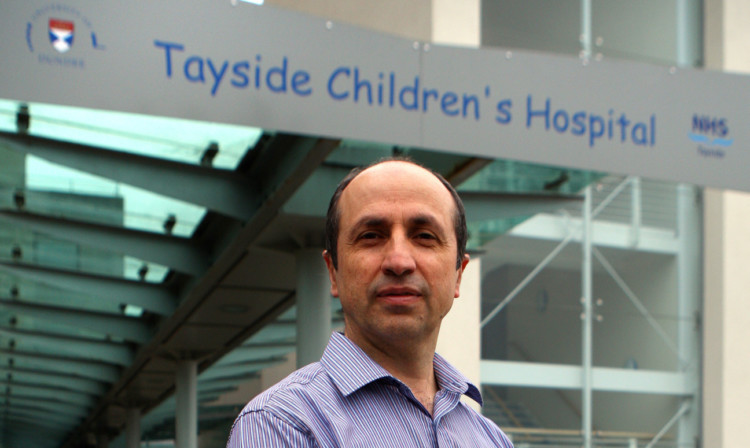A Kurdish-Iraqi doctor who fled his war-torn country has returned home with a Tayside team to train a new generation of medical staff.
Dr Mohammed Ibrahim was shot and captured by US forces after being conscripted into the Iraqi Army during the first Gulf War in 1990.
The 49-year-old, now director of teaching at Tayside Children’s Hospital, was accused of collaborating with the Americans and left the country to work abroad.
But Dr Ibrahim recently returned to his home town of Arbil, in the Kurdistan region of Iraq, to train hospital staff at Hawler Medical University as the head of a seven-strong team.
He said: “They have been isolated for 15 to 20 years, but now they are working hard again. They are anxious to get the steps right and are looking at us to guide them.
“The dean of the medical school visited us in Dundee around 18 months ago and signed a memorandum of understanding.
“Living here and understanding the local culture, I felt I was in a very good position to coordinate. There is a lot of goodwill here and a lot of need there and it is basically putting it together.”
Dr Ibrahim came to Scotland in 1995 and first returned to his home town in 2005, where he was shocked to see how it had been left after years of conflict.
He said: “In 1979, when I was a young chap, we had one of the best health systems in the region. In the 1980s war against Iran all the resources were directed towards the war. Sanctions started after Saddam Hussein invaded Kuwait so there was significant deterioration of the health service.
“I was a newly-graduated doctor in the 1991 and I was in the army as a conscript. I was shot by the Americans and a detainee in the camps in Saudi Arabia.At that stage we met a lot of American doctors, so we formed a small group to help people wherever.
“I became a paediatrician after that. I went back to Iraq and I was in trouble because I speak good English and I dealt with the Americans.
“I wanted to start my career in the States with some of the American doctors I met. But I did not like the American system of insurance. Coming from the Middle East, with its troubles, to then say I cannot treat this child because he doesn’t have the right insurance, that was against my principles.”
He says his Iraqi counterparts are full of praise for the work being done in Dundee.
He said: “They recognise Dundee as pioneers in medical education.”
